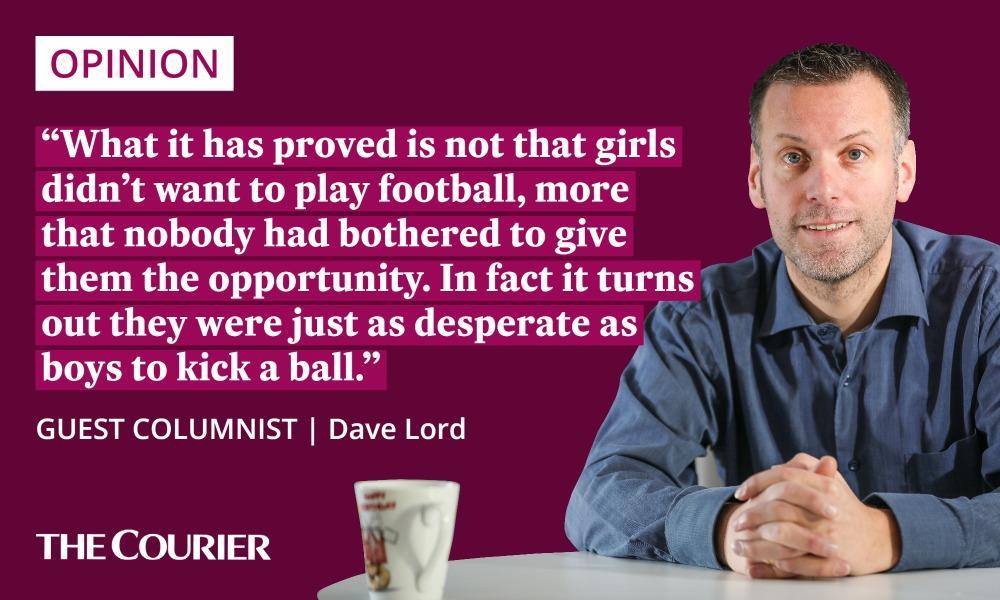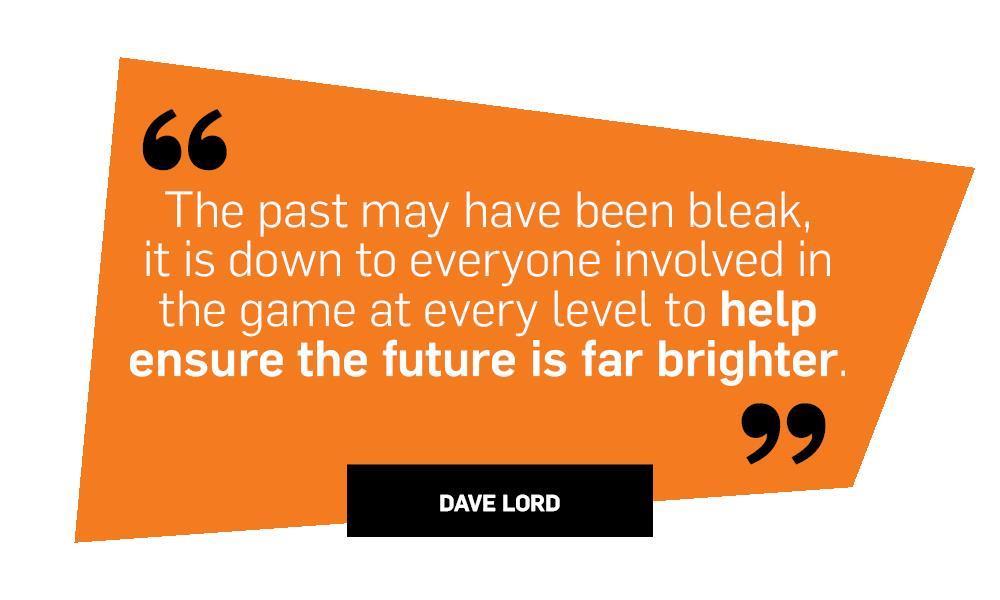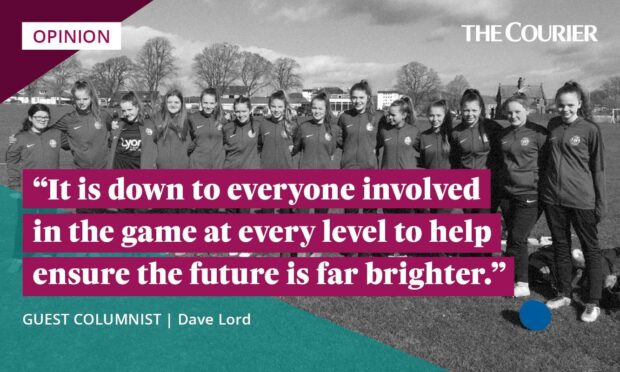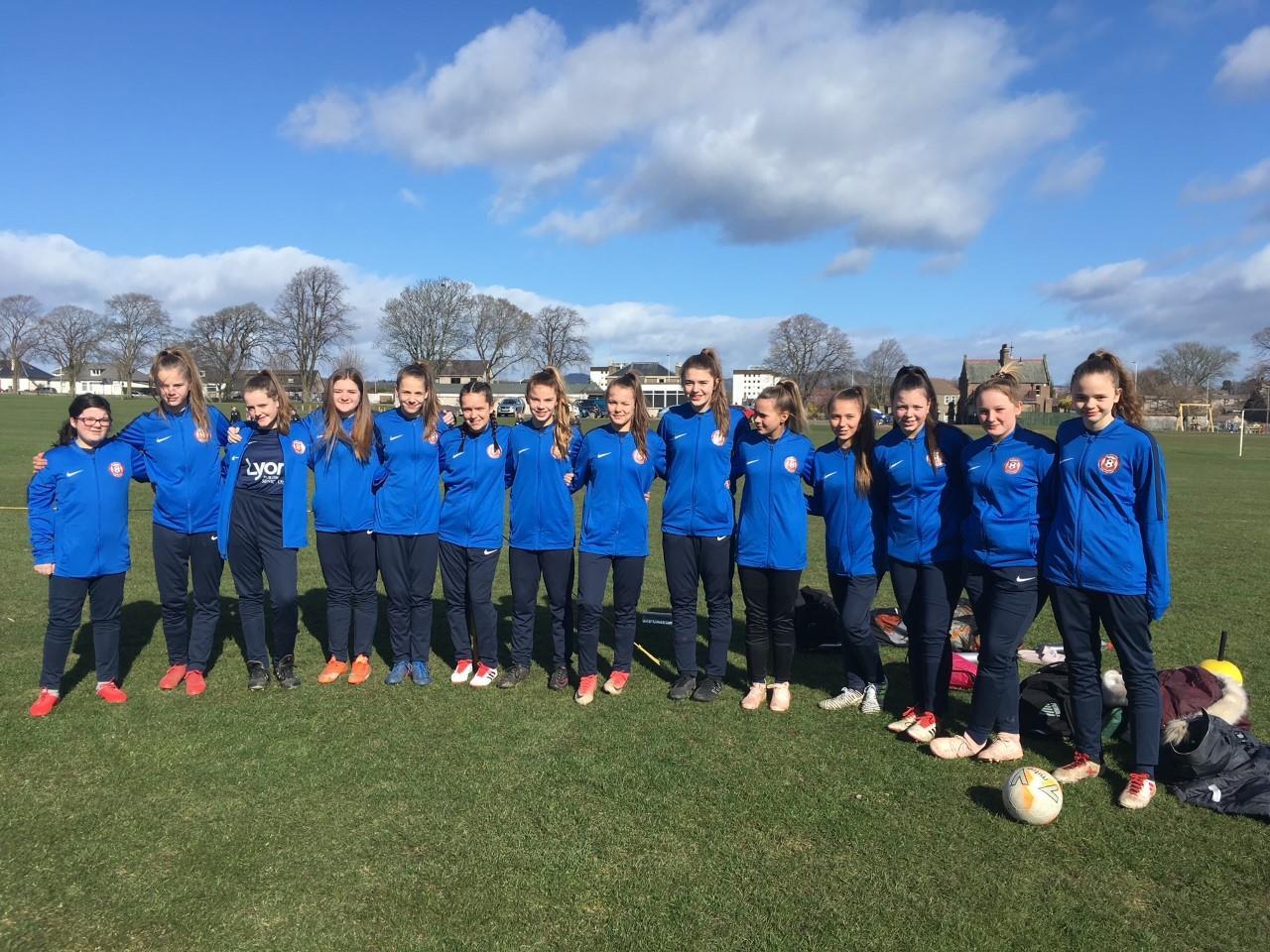It would have been different a generation or two ago.
Then it was unusual to see a girl on the terraces. And for some less-enlightened souls it was unthinkable that females might actually be playing the beautiful game in any kind of numbers.
Now, take a drive through Dundee on a Saturday or Sunday – past Dawson Park, Lochee, Claypotts or Riverside – and you are as likely to see as many girls’ football matches as you are boys.
And it feels like that’s where real headway is being made – at the grassroots level.
The battle for equality

The battle for equality of opportunity may not have been decisively won, but there is little doubt huge strides have been taken.
So this is a relentlessly upbeat take on the situation.
Blind optimism alone won’t make a difference, I know that, but the hope of a level playing field (metaphorical if not literal) is genuine and – perhaps for the first time – realistic.
Instead of being barely tolerated – and maybe shunted in to play with their boys’ school team if they dared to show any particular prowess – there is now a clear pathway for young female footballers.
Spectacular transformation
And much less of the sneering, condescending attitude players might have faced in the past.
The transformation over that last generation or two has been as spectacular as it has rapid.
Tolerance and acceptance – things that so obviously should be taken for granted – are the key.
The attitudes faced by many females in the past are dying out with the dinosaurs who perpetuated them.
It is still far from perfect: Just recently I heard of one club which wouldn’t let girls play on their show pitch, insisting it be kept pristine for the boys.
But there is no doubt we are moving in the right direction. And it is this generation that is blazing the trail.
Simple but powerful messages, like the use of #shecan on social media, have helped to normalise women in sport.
I have enjoyed playing a tiny part in the growth of girls’ football.
Back in 2014 my eldest daughter decided she would like to play football.
There was no school team for her, but a quick Google search ascertained that the local boys’ club had a girls’ section catering for kids her age.
Tiny offshoot to brand new section
She went along a few times. Numbers weren’t great but there was a core of about eight girls who turned up pretty regularly.
After helping out at training once or twice, the inevitable happened and I gradually found myself playing a more and more key role in organising training, co-ordinating games and so on.
The girls roped in their pals, and soon we had gone from a tiny offshoot of a huge boys’ club to the creation of a brand new girls’ section catering exclusively for female kids in the Dundee East area.

The growth was astonishing. But it wasn’t hard-fought. Girls were lining up to play football.
And it was by no means unique to the club I was coaching with.
Dundee West, Dryburgh, Forfar, Arbroath, Monifieth and many more in the vicinity – all had strong, successful and resilient teams.
What it has proved is not that girls didn’t want to play football, more that nobody had bothered to give them the opportunity.
In fact it turns out they were just as desperate as boys to kick a ball.
The past may have been bleak, it is down to everyone involved in the game at every level to help ensure the future is far brighter.
Dave Lord is the editor of the Dundee Evening Telegraph
Anyone who witnesses sexist abuse, harassment or discrimination, can report it in a number of ways.
You can report discrimination within Scottish grassroots football to the Scottish Football Association.
Or search for Scottish FA Grassroots in Google Play or App store.
Also, the Her Game Too anti-sexism campaign has an anonymous online form.
If you feel the form of discrimination you witnessed either on the pitch or online could be a hate crime, you may also report it to Police Scotland via 101.
Read more from this series
- Women in football: Our survey reveals scale of sexist abuse facing those who love the game
- Sophie Goodwin: I was too scared to call out abuse in women’s football before. But that’s what I’m doing now
- Georgia Carter: Online abuse has to be taken seriously for women’s football to grow
- Shelley Hague: ‘Football can be a great force for good’
- Arbroath Community Sports Club Girls is real labour of love for founder Ellie
- ‘People watch Emma Raducanu play other young female tennis players and nobody compares it to the men’s game’
- Elsie Cook: We have to speak out against sexists. We can’t let them win
Credits
Words and interviews by Sophie Goodwin and Stephen Stewart
Story design by Cheryl Livingstone
Graphics by Carly Gilchrist
Data visualisations by Emma Morrice
Video by Drew Farrell, Kim Cessford and Gregor Aiken











